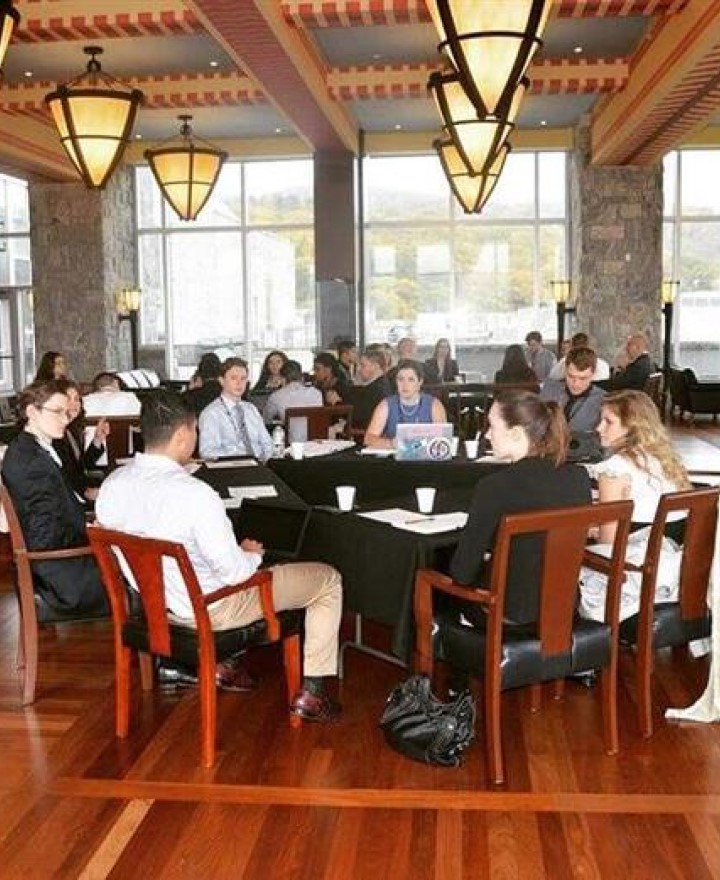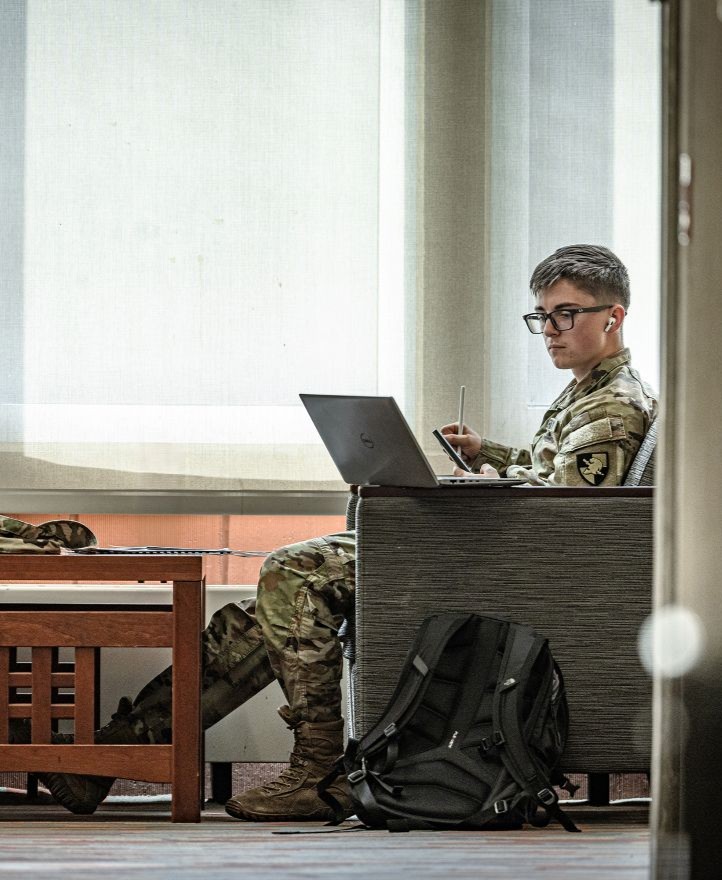
The Class of '71 Student Conference on U.S. Affairs (SCUSA) is a prestigious four-day event where undergraduate students collaborate with leading scholars and practitioners to develop innovative policy proposals on pressing issues in U.S. foreign affairs. As one of the largest and longest-running conferences of its kind, SCUSA brings together approximately 200 students from over 100 institutions across the United States and around the world, representing a wide range of academic disciplines.
SCUSA goes beyond fostering in-depth dialogue on complex global challenges. The conference serves as a vital platform for building enduring civil-military relationships among the next generation of leaders in the military, government, and private sectors. The conference is named after the West Point Class of 1971, which sponsors the annual fall event. SCUSA has been part of the U.S. Military Academy (USMA) Department of Social Sciences program since 1949.
While attending SCUSA, delegates gain a unique insight into the daily life of the United States Corps of Cadets, which includes future officers in the U.S. Army. They interact with USMA cadets on conference roundtables, while staying in cadet barracks, and over meals in the cadet mess hall.



The conference begins with insights from senior leaders, followed by a keynote from a leading policy expert. From there, delegates dive into roundtable sessions to explore specific regions or issues under the mentorship of distinguished academics and practitioners. Delegates sharpen their ideas into concrete policy proposals - building the skills, knowledge, and confidence to influence the future of U.S. foreign policy.
Examples of Roundtable Topics

Past SCUSA conferences highlight years of thought leadership, collaboration, and exploration of America’s role in the world.


Reach out to the Department of Social Sciences (SOSH) for more information about the conference. SCUSA invites delegates to the conference through their respective academic institutions. If you are interested in attending SCUSA, contact your university's Political Science or International Affairs department.